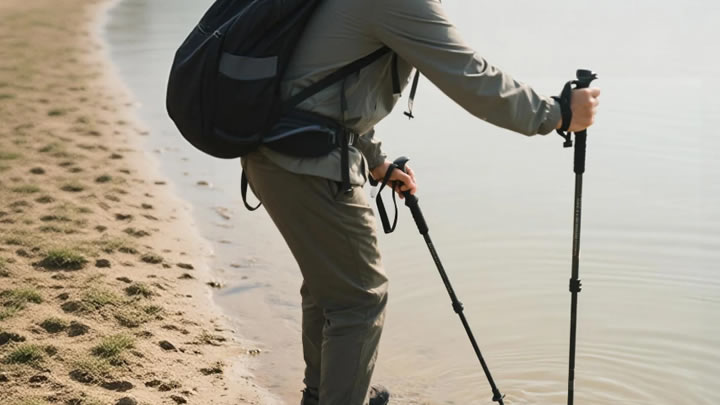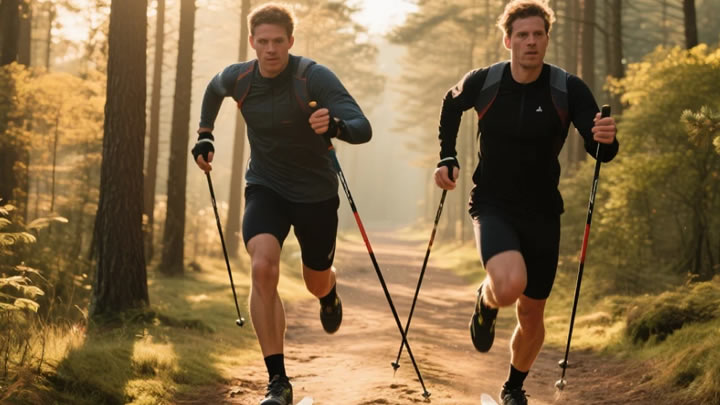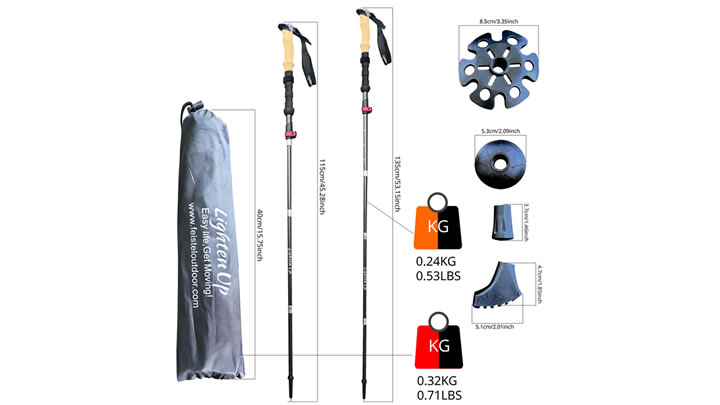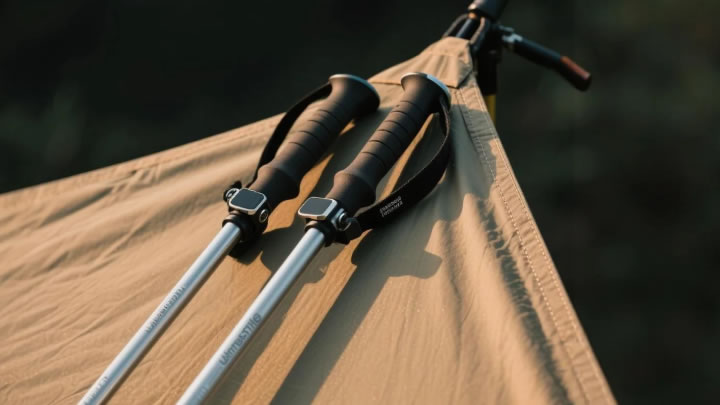Trekking Pole Weight Guide for Hiking
When selecting trekking poles, weight is more than just a number—it's a critical factor that influences your endurance, comfort, and overall hiking experience. While ultralight enthusiasts might prioritize minimizing every gram, and rugged backpackers might favor durability over weight savings, finding the right balance is key to maximizing your performance on the trail. This guide breaks down the factors affecting trekking pole weight and helps you choose the best option for your needs.

Why Pole Weight Matters
Every gram adds up over thousands of pole placements. Heavier poles increase arm and shoulder fatigue, reducing efficiency on long hikes. Lighter poles allow for a more natural rhythm and conserve energy, but they may sacrifice some durability. The ideal weight depends on your hiking style, terrain, and personal priorities.
Weight Ranges and Materials
Trekking poles generally fall into three weight categories:
- Ultralight (Under 200g per pole): This category is dominated by carbon fiber. Poles like the LEKI Micro RCM Superlight (128g) or Black Diamond Distance Carbon Z (approx. 150g) use high-modulus carbon to achieve minimal weight. They excel at damping trail vibration and are the top choice for fastpacking, thru-hiking, and anyone seeking to minimize fatigue. The trade-off is a higher cost and potentially less impact resistance compared to aluminum.
- Lightweight (200g - 280g per pole): This is a popular middle ground, featuring both advanced aluminum alloys and more affordable carbon fiber models. Poles like the Komperdell C3 Carbon Powerlock (240g) offer a great blend of low weight and dependable performance for most backpacking and day hiking scenarios.
- Standard Weight (280g - 350g+ per pole): This category is primarily made up of durable aluminum poles, such as those from Black Diamond's Trail series or REI Co-op. Made from strong 7075 or 6061 aluminum, they are exceptionally rugged, reliable, and affordable. They are the workhorses of the trekking pole world, ideal for rough terrain, bushwhacking, and hikers who prioritize longevity and value over shaving grams.
How Design Impacts Weight
- Material: Carbon fiber is the undisputed champion for light weight. Aluminum is heavier but offers superior durability and a lower price point.
- Locking Mechanism: Folding "Z-pole" designs (e.g., Black Diamond Distance Z) are often the lightest, as they eliminate heavy internal mechanisms. Lever locks are very secure but add a bit more weight than twist locks, though twist locks can be less reliable.
- Grip Material: Foam (EVA) grips are generally the lightest. Cork is slightly heavier but offers excellent moisture-wicking and comfort. Rubber is the heaviest and is less common on modern performance poles.
- Features: Shock absorption systems add noticeable weight and complexity. While they soften impacts on descents, many ultralight hikers prefer the simplicity and lower weight of non-shock-absorbing poles.
Choosing the Right Weight for You
Your ideal pole weight depends on your answers to these questions:
- What is your typical terrain?Smooth trails & long distances: Prioritize ultralight carbon poles.Rugged, off-trail, & rocky: A slightly heavier aluminum pole is a wiser, more durable choice.
- How do you use your poles?Primary propulsion & rhythm: Lighter poles reduce fatigue.Occasional stability & stream crossings: Standard weight is perfectly adequate.
- What is your budget?Maximize savings: Aluminum poles offer the best value.Maximize weight savings: Be prepared to invest in carbon fiber.
The Verdict: Performance vs. Durability
There is no single "best" weight, only the best weight for your hike.
| Hiking Style | Recommended Pole Weight | Why It Works |
|---|---|---|
| Thru-Hiking / Fastpacking | Ultralight (<200g) | Minimizes energy expenditure over thousands of steps. |
| General Backpacking | Lightweight (200-280g) | The best balance of weight, durability, and price. |
| Tough Terrain / Bushwhacking | Standard (280g+) | Aluminum stands up to rocks, falls, and abuse. |
Conclusion: It's a Personal Equation
The best trekking pole weight is a personal equation balancing comfort, durability, terrain, and budget.






